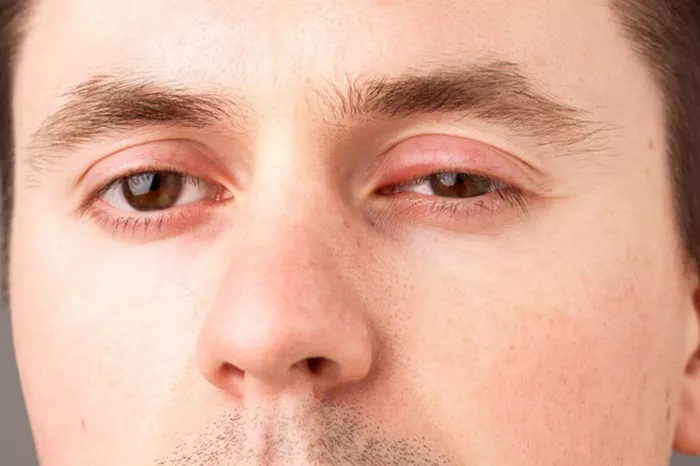Eye swelling, also known as periorbital edema, can be caused by various factors, with allergies being a common culprit. Allergic reactions trigger inflammation and fluid accumulation around the eyes, leading to puffiness and discomfort. Understanding the underlying causes and mechanisms of eye swelling is crucial for effective management and relief.
Common Allergens
Pollen: Seasonal allergens like pollen from trees, grasses, and weeds are common triggers.
Dust Mites: Microscopic organisms found in household dust can cause allergic reactions.
Pet Dander: Proteins found in the skin flakes, saliva, and urine of pets can lead to allergies.
Mold: Spores from mold and mildew can cause eye irritation and swelling.
Certain Foods: Some foods can trigger allergic reactions that result in eye swelling.
Symptoms of Allergic Eye Swelling
1.Puffiness around the eyes
2.Redness and irritation
3.Itching and burning sensation
4.Watery eyes
5.Sensitivity to light
Immediate Relief Measures
When eye swelling due to allergies occurs, immediate relief is essential to reduce discomfort and prevent further irritation.
Cold Compresses
Applying a cold compress can help constrict blood vessels and reduce inflammation.
How to Apply: Wrap ice cubes in a clean cloth and place it over closed eyes for 10-15 minutes.
Frequency: Repeat several times a day for best results.
Over-the-Counter Medications
Antihistamines and decongestants can provide quick relief from allergic symptoms.
Antihistamines: Medications like cetirizine and loratadine can reduce itching and swelling.
Decongestants: Eye drops containing decongestants can alleviate redness and puffiness.
Long-Term Management Strategies
For sustained relief from eye swelling due to allergies, long-term management strategies are essential. These approaches focus on minimizing exposure to allergens and strengthening the body’s defenses.
Allergen Avoidance
Identifying and avoiding allergens is the first step in managing allergic reactions.
Keep Windows Closed: During high pollen seasons, keep windows shut to prevent allergens from entering the home.
Use Air Purifiers: Air purifiers with HEPA filters can reduce indoor allergens.
Clean Regularly: Dust and vacuum frequently to minimize dust mites and pet dander.
Allergy-Proof Bedding
Using hypoallergenic bedding can reduce exposure to dust mites and other allergens.
Pillow Covers: Use dust mite-proof covers for pillows.
Mattress Covers: Encasing the mattress in a hypoallergenic cover can provide a barrier against allergens.
Regular Washing: Wash bedding in hot water weekly to eliminate allergens.
Natural Remedies
Several natural remedies can provide relief from eye swelling due to allergies. These remedies are often gentler on the skin and can be used in conjunction with other treatments.
Chamomile Tea Bags
Chamomile has anti-inflammatory properties that can soothe irritated eyes.
How to Use: Steep chamomile tea bags in hot water, then let them cool. Place the cool tea bags over closed eyes for 10-15 minutes.
Cucumber Slices
Cucumbers have a cooling effect that can reduce puffiness.
How to Use: Place chilled cucumber slices over closed eyes for 10-15 minutes.
Aloe Vera Gel
Aloe vera has soothing and anti-inflammatory properties.
How to Use: Apply a small amount of pure aloe vera gel around the eyes and leave it on for 15-20 minutes before rinsing.
Professional Treatments
For persistent or severe eye swelling, professional medical treatments may be necessary. Consulting a healthcare provider can provide access to more targeted therapies.
Prescription Medications
In some cases, stronger medications may be needed to control allergic reactions.
Corticosteroids: Prescription eye drops containing corticosteroids can reduce severe inflammation.
Immunotherapy: Allergy shots or sublingual tablets can help build tolerance to specific allergens over time.
Consulting an Allergist
An allergist can perform tests to identify specific allergens and develop a personalized treatment plan.
Allergy Testing: Skin prick tests or blood tests can determine which allergens trigger reactions.
Personalized Plan: Based on test results, an allergist can recommend appropriate medications and avoidance strategies.
See also: Is Witch Hazel Good For Puffy Under Eyes?
Lifestyle Adjustments
Making certain lifestyle changes can help manage and prevent eye swelling due to allergies. These adjustments aim to reduce exposure to allergens and support overall health.
Diet and Hydration
A healthy diet and proper hydration can support the body’s immune response.
Anti-Inflammatory Foods: Incorporate foods like leafy greens, berries, and fatty fish that have anti-inflammatory properties.
Stay Hydrated: Drink plenty of water to keep the body hydrated and flush out toxins.
Regular Exercise
Regular physical activity can boost the immune system and reduce allergy symptoms.
Outdoor Exercise: Be mindful of pollen levels and choose times when allergens are lower.
Indoor Exercise: Opt for indoor workouts during high pollen seasons.
Preventive Measures
Taking preventive measures can reduce the likelihood of experiencing eye swelling due to allergies. These steps involve proactive efforts to minimize allergen exposure and support immune health.
Regular Cleaning
Keeping the living environment clean can reduce the presence of allergens.
Vacuuming: Use a vacuum cleaner with a HEPA filter to remove dust and pet dander.
Washing: Wash curtains, rugs, and other fabrics regularly to eliminate allergens.
Personal Hygiene
Practicing good personal hygiene can help reduce allergic reactions.
Hand Washing: Wash hands frequently to remove allergens.
Face Washing: Wash the face and eyes with water after exposure to allergens.
Monitoring Pollen Levels
Being aware of pollen levels can help in planning outdoor activities.
Pollen Forecasts: Check daily pollen forecasts and plan activities when levels are lower.
Protective Gear: Wear sunglasses and a hat to shield eyes from pollen when outdoors.
Conclusion
Reducing eye swelling from allergies involves a combination of immediate relief measures, long-term management strategies, natural remedies, professional treatments, lifestyle adjustments, and preventive measures. By understanding the causes of allergic eye swelling and implementing these strategies, individuals can effectively manage symptoms and improve their quality of life. Regular consultation with healthcare providers and allergists can provide personalized guidance and ensure the most effective treatment plan.
Related topics:
How To Get Rid Of Genetic Eye Bags?
How To Get Rid Of Puffy Eyes In The Morning?
Can Tea Bags Get Rid Of A Stye?


